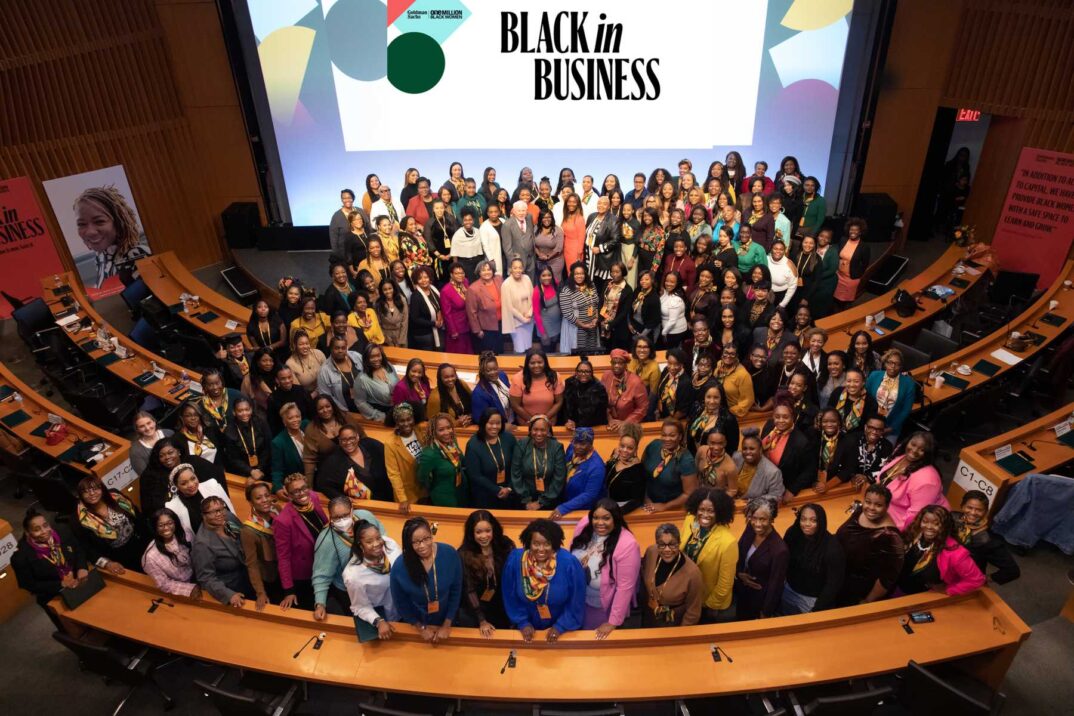By: Joyce Brayboy, Managing Director, Goldman Sachs
March is Women’s History Month, a time to celebrate the achievements of women and recognize their significant contributions to history and society. It is also a time to reflect on the ongoing struggle for gender equality and advocate for greater representation and opportunities for women.
The Black community and its allies have long advocated for equitable distribution of resources in order to provide greater opportunities to this generation and those to come. Whether this be access to quality education, healthcare, housing, or the numerous other areas in which Black Americans are underserved, proponents of equality continue to fight to make this dream a reality.
In this daunting task, policy makers at all levels have worked to create solutions to eliminate the gaps that Black Americans face — particularly the dual racial and gender gaps faced by Black women. Federal, state and local officials have introduced policies such as the Affordable Care Act, school finance equalization measures, and budgets that allow for the creation and maintenance of affordable housing, among many other solutions to improve these disparities.
Despite the numerous laws and directives that have been created, there has been inadequate progress in this march for racial equality, women’s life expectancy still lags behind white women by nearly three years, their schools still lack adequate resources to provide high-quality education and one-third of their homes are estimated to be unhealthy.
These and various other disparities have contributed to a reality where Black households own 90% less total wealth than the median white household – a gap that widens even further when comparing single Black women to single White men.
This is not to say that we need to do away with federal and state regulations – they have proven themselves to be effective tools in helping Black women to get this far. However, what this does tell us is that policies and legislation acting in silos are inadequate and insufficient to achieve racial equity across these key economic and social pillars. We must seek complementary solutions. In doing so, Goldman Sachs has created a private sector-led program that has already delivered tangible results in narrowing opportunity gaps in the lives of Black women, starting at birth and at every key moment of a Black woman’s life.
Through the Goldman Sachs One Million Black Women initiative, Goldman committed $10 billion in investment capital and $100 million in philanthropic capital to touch the lives of at least one million Black women by 2030. In just 18 months since the launch of this initiative, Goldman has already deployed $1 billion in investment capital and $20 million in grant capital to 116 organizations around the country. This financial support will allow these organizations to impact the lives of over 180,000 Black women and girls across 24 states, in addition to Washington D.C. and the U.S. Virgin Islands.
In order to guide our investments and grant-making, the One Million Black Women initiative conducted 60 listening sessions with over 20,000 Black women and girls where we heard about the issues that matter most in their lives. From these listening sessions, we launched two new programs, Black Women Impact grants and Black in Business to address specific feedback from nonprofit leaders and entrepreneurs. One Million Black Women is guided by an Advisory Council of 16 powerful Black leaders – spanning across philanthropy, business, nonprofits, education, government, and the arts – who provide strategic guidance on the scope of Goldman’s investments and their potential to accelerate racial equity progress.
In addition to this being the moral imperative of our time, reducing social and economic disparities in the United States is good business writ large. By providing Black women with the support and resources necessary to redress centuries of historic grievances, we have the ability to increase annual U.S. GDP by as much as 2.1 percent, or $525 billion, per year.
Businesses and corporations have an important role to play in forging a more just society. As trusted pillars within the communities that we serve, we stand in unique positions of power to influence nearly every aspect within our communities. Through the One Million Black Women initiative, we have met so many local leaders who have the drive and passion to create social change – they just need the resources and support to improve lives, and that is exactly the goal of the One Million Black Women initiative.
One Million Black Women is proud to support the Congressional Black Caucus Foundation (CBCF) in its mission of advancing the global black community. Through our sponsorship, we are working together to empower Black women leaders and promote social and economic justice. We believe that by joining forces with the CBCF, we can make a meaningful impact on the lives of black women and help create a more just and equitable society for all. This Women’s History Month, we reflect on our partnership with CBCF and their initiatives to uplift and support Black women and remain inspired by the legacy of trailblazing Black women who have paved the way for us all.
It is our belief that One Million Black Women can serve as a catalyst for other initiatives and programs to accelerate racial equity investment from the private sector to complement public sector policy solutions. This is more than the aspirational hope of a few – we believe that public and private sector collaborations are essential to maximize impact and scale to positively benefit Black women.
